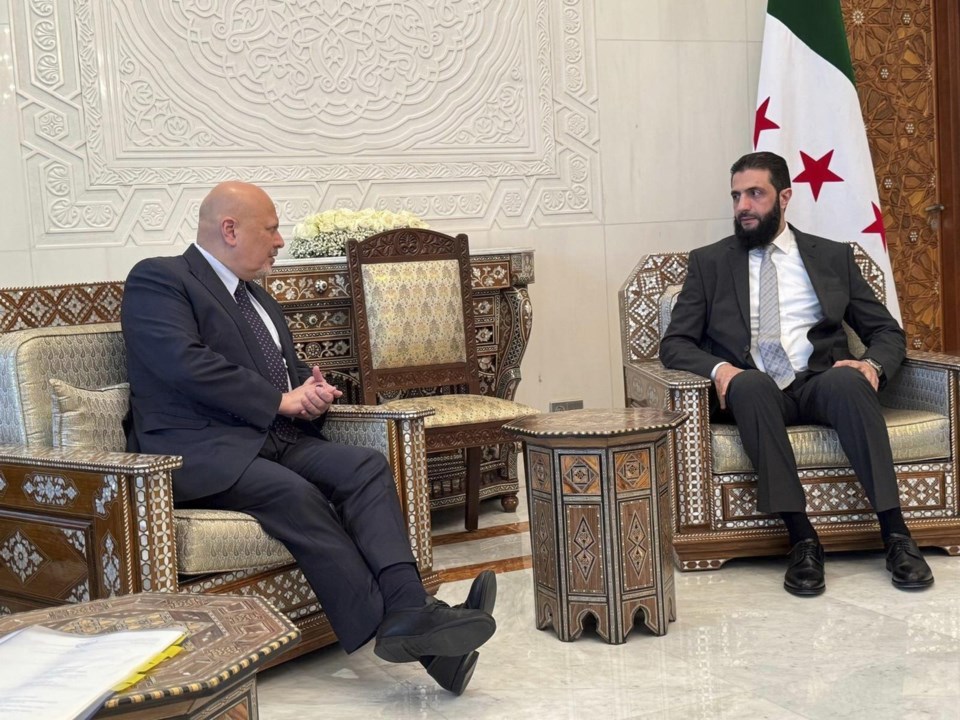THE HAGUE, Netherlands (AP) — The International Criminal Court’s chief prosecutor Karim Khan made an unannounced visit Friday to Damascus to confer with the leader of on how to ensure accountability for alleged crimes committed in the country.
Khan's office said he visited at the invitation of Syria’s transitional government. He met with Ahmad al-Sharaa, the leader of Syria’s new administration who was formerly known as Mohammad al-Golani, and the foreign minister to discuss in The Hague for victims of the country's civil war, which has left more than half a million dead and more than six million people displaced.
Al-Sharaa is a who severed ties with the extremist group years ago and leads Hayat Tahrir al-Sham, or HTS, the group leading the new authority in Syria. The former insurgent group, considered a terrorist group in the U.S., led the lightning offensive that toppled longtime dictator Bashar Assad last month and is now the de facto ruling party in the country.
Assad, who fled to Russia in December, waged an oppressive campaign against anyone who opposed him during his more than two decades in power.
Rights groups estimate at least 150,000 people went missing after anti-government protests began in 2011, . Many of them were killed, either in mass executions or from torture and prison conditions. The exact number remains unknown.
The global chemical weapons watchdog found Syrian forces were responsible for multiple attacks using chlorine gas and other banned substances against civilians.
Other groups have also been accused of human rights violations and war crimes during the country’s civil war.
The new authorities have called for members of the Assad regime to be brought to justice. It is unclear how exactly that would work at this stage.
Syria is not a member of the ICC, which has left the court without the ability to investigate the war. In 2014, Russia and China blocked a referral by the United Nations Security Council which would have given the court jurisdiction. Similar referrals were made for Sudan and Libya.
Khan's visit comes after a trip to Damascus last month by the U.N. organization assisting in investigating the most serious crimes in . The International, Impartial and Independent Mechanism for Syria was created to assist in evidence-gathering and prosecution of individuals responsible for possible war crimes, crimes against humanity and genocide since Syria’s civil war began in 2011.
The group's head, Robert Petit, highlighted the urgency of preserving documents and other evidence before they are lost.
Molly Quell, The Associated Press




